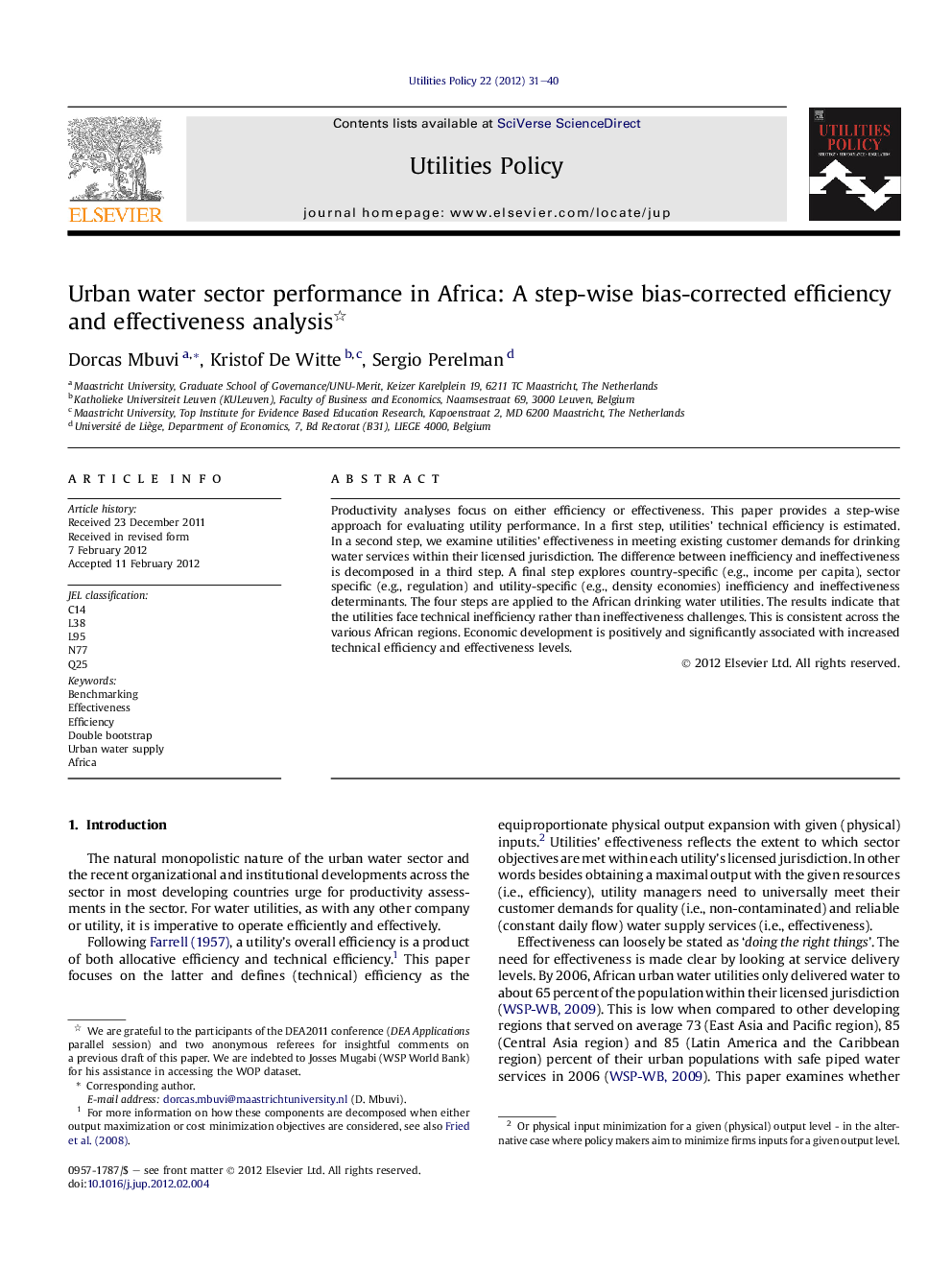| Article ID | Journal | Published Year | Pages | File Type |
|---|---|---|---|---|
| 999193 | Utilities Policy | 2012 | 10 Pages |
Productivity analyses focus on either efficiency or effectiveness. This paper provides a step-wise approach for evaluating utility performance. In a first step, utilities’ technical efficiency is estimated. In a second step, we examine utilities’ effectiveness in meeting existing customer demands for drinking water services within their licensed jurisdiction. The difference between inefficiency and ineffectiveness is decomposed in a third step. A final step explores country-specific (e.g., income per capita), sector specific (e.g., regulation) and utility-specific (e.g., density economies) inefficiency and ineffectiveness determinants. The four steps are applied to the African drinking water utilities. The results indicate that the utilities face technical inefficiency rather than ineffectiveness challenges. This is consistent across the various African regions. Economic development is positively and significantly associated with increased technical efficiency and effectiveness levels.
► A step-wise approach is suggested to evaluate utility performance. ► We distinguish efficiency from effectiveness in African water utilities. ► Utilities across the East, West and Southern African regions are less ineffective than technically inefficient. ► South African utilities are the best performing both in terms of effectiveness and technical efficiency. ► Countries’ economic development is positively and significantly linked to utilities technical efficiency and effectiveness.
